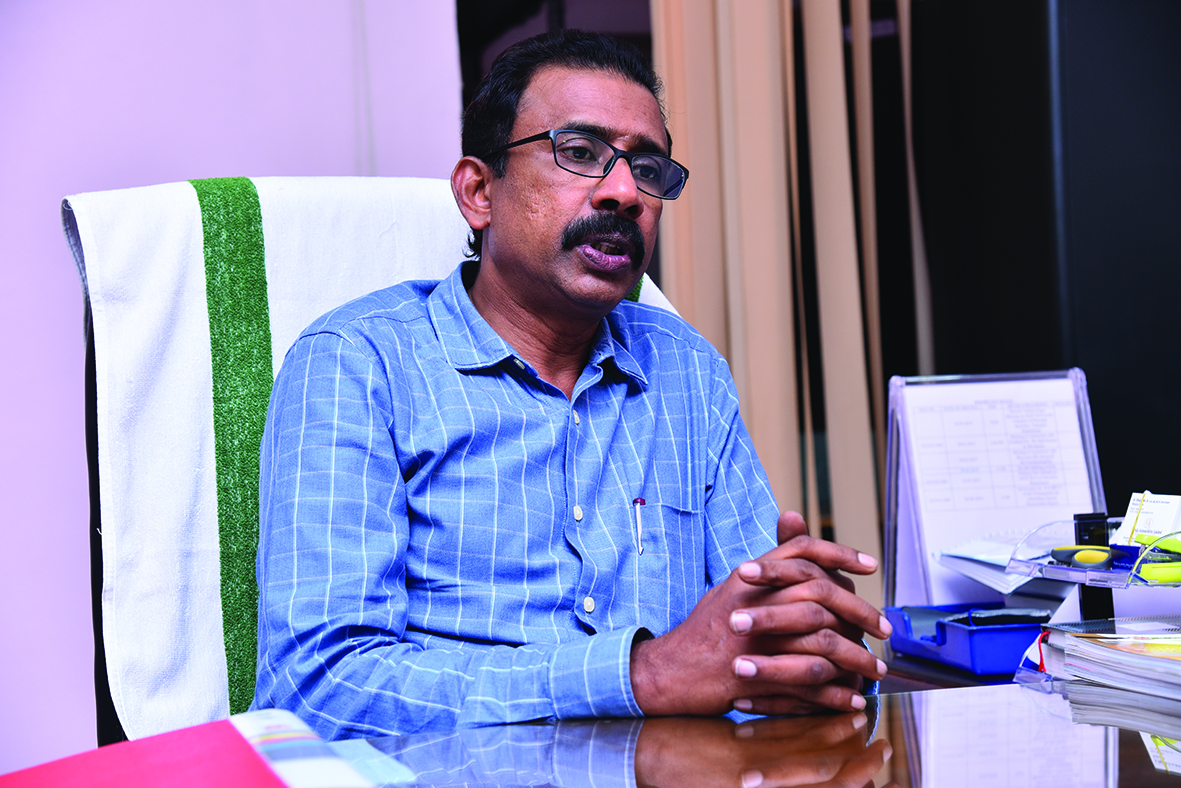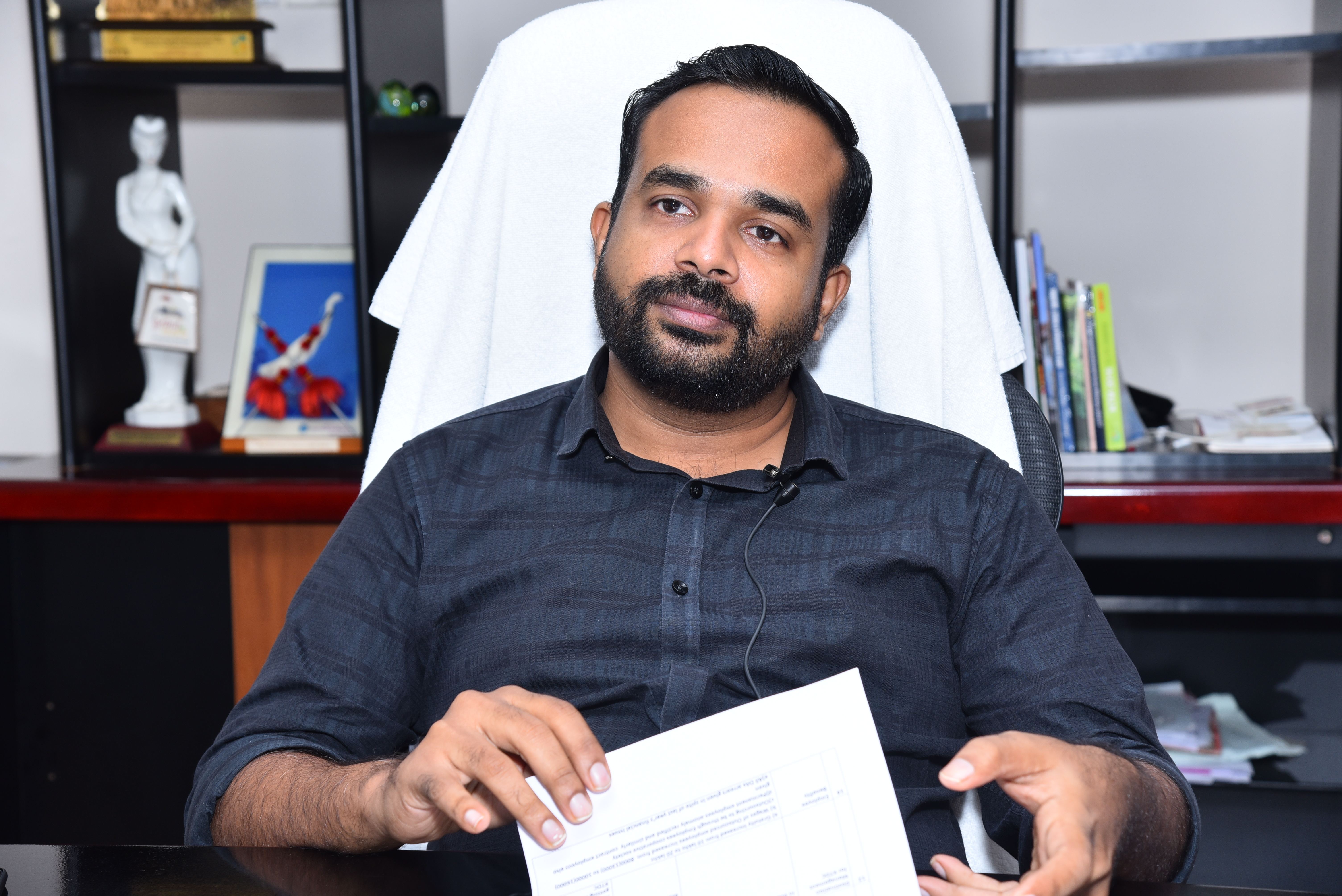Kerala Automobiles Limited, which is a company set up under the State Industries Department in 1985, had been manufacturing petrol three-wheelers in the initial stages. It switched to diesel three-wheelers and had been selling them in Delhi, Haryana, Punjab, Rajasthan, Uttar Pradesh, Madhya Pradesh, Orissa and Bihar. It had been manufacturing 7,300 auto rickshaws a year until the new policies of the centre and state governments affected its demand and led to a fall in production.”
“The promotion of CNG fitted autos and the new norms of BS3, BS4 and BS6 to fight pollution contributed to the fall in demand and consequently production. Sales dropped, production declined and the company went into negative growth in business and faced many problems.”
“The state government led by Mr.PinarayiVijayan, in an effort to cut pollution and for the development of green energy by 2023, in 2018 adopted a policy to promote the use of electric vehicles in the cities across the state.
“Realising the immense potential in the policy, as part of a flagship project, KAL came up with a prototype of an electric three wheeler. The first prototype was tested over varied terrains in and around Trivandrum for 5,000 km.
The biggest advantage of an electric auto rickshaw is the fact that it is non-polluting. Neem G, the electric auto rickshaw developed by KAL, can be charged at home as it doesn’t require any specialised chargers. One only needs to plug it in for four hours for a full charge. This is the apt vehicle for city use.
After the prototype’s efficiency was tested, and after all other tests it was ready for getting registration of Automotive Research Association of India (ARAI) Pune, which is prime Testing and Certification Agency notified by Government of India under Rule 126 of Central Motor Vehicle Rules, 1989.
The electric three-wheeler of KAL was the first to get ARAI certification for electric autos by a public sector unit, beating big private players in private sector.
After technical validation by Pune-based ARAI (Automotive Research Association of India), the Ministry of Heavy Industries gave the green signal to start production of e-auto rickshaws
On July 10, 2019, the chief minister inaugurated the commercial production of e-auto rickshaws and the launch of a modernised machine shop.
The government had invested allotted Rs.10 crores in the 2018-19 and Rs.6 crores in 2019-20 to KAL for the development of the electric vehicle. This was as part of the Green policy of the government in building a new Kerala.
If you consider the reasons for introducing electric vehicles, there are quite a few.
Reduction in pollution, riding comfort as there was no vibration and fuel efficiency are the major ones. While a diesel run auto costs Rs.2 per km and petrol one Rs.3 per km, an electric auto will cost only 50ps per km. On a single charge the auto can run for 90km to 100km. Another factor is the low maintenance cost for an electric auto.
The Neem G autos of KAL come in two versions e-auto and e-rickshaw. The e-rickshaw will be ideal for last mile connectivity – from a bus stand to the railway station – -and it would be ideal as a shared service that can be used paying Rs.10 each for a short distance of maximum 5km. It comes with low power, run for 70 to 80 km and would cost Rs.2 lakhs each.
We expect the central and state governments to extend subsidy for the vehicle so that the price can be brought down, The e-auto would cost Rs.2.75 lakhs which can be brought down to Rs.2 lakhs, priced below a diesel auto.
This would also mean that KAL will be making big profit in the coming years.
KAL had also started manufacturing components for Vikran Sarabhai Space Centre and LPSC. As part of this KAL had set up modern CNC machines and installed air-conditioned cabins to increase work efficiency and introduce a new work culture at the company.
KAL signed a rate contract with the space agency for manufacturing components for space programmes. This will help KAL become a profit making unit in the near future.
KAL has also signed anMoU with Swiss electric bus maker HESS to initially assemble and subsequently manufacture e-buses. KAL plans to produce around 3,000 electric buses for Kerala State Road Transport Corporation.
“I hope this move by KAL will lead to Kerala becoming a big hub for electric vehicle manufacturing as it points to the changing investment climate and industrial policy of the state government and public sector units have a bigger role in these ventures.”














